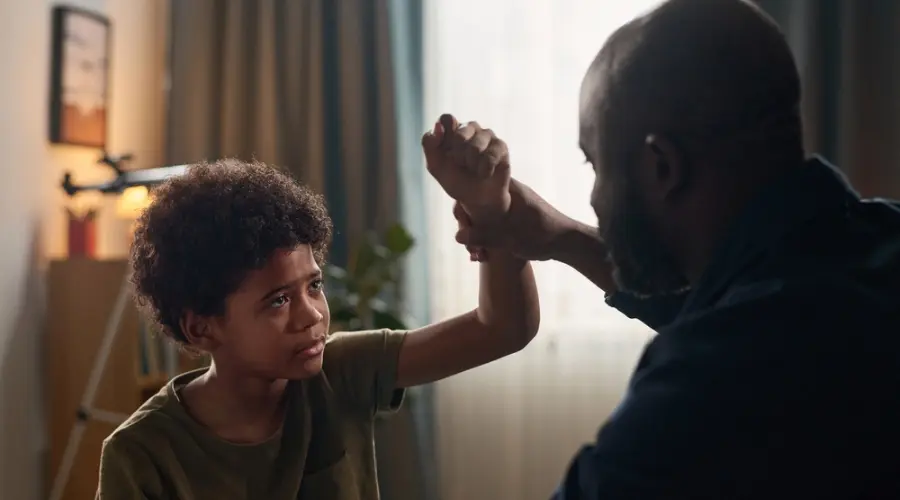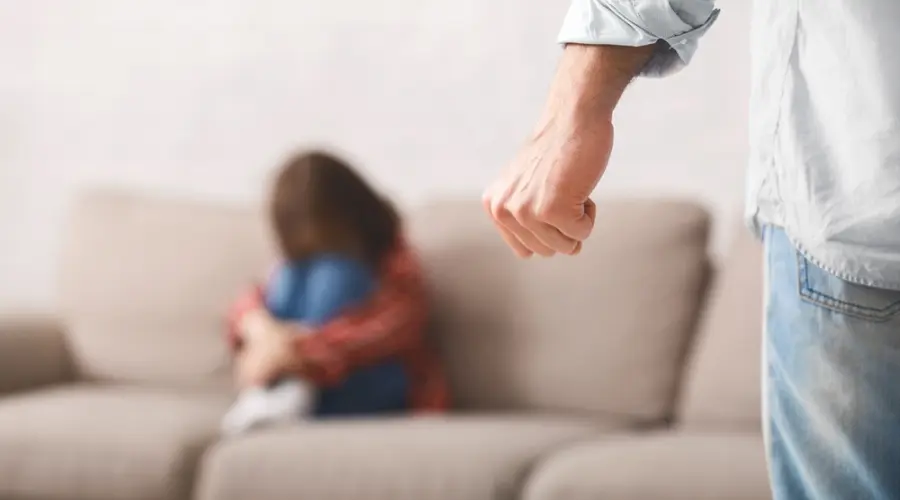Attachment Disorder Among Adults and Treatment Options
As humans, healthy emotional bonds are critical to our quality of life and well-being. People with attachment disorders and related concerns often want to create lasting and secure relationships with others very badly, but attachment difficulties can get in the way.
If you or a loved one are seeking out more information on AAD, or are struggling with the symptoms, you may be aware of how disruptive it can be. But you are not alone.
Attachment problems are common in people of all ages, and working through them is possible, even if they are severe.
Catalina Behavioral Health is a treatment center in Arizona that offers inpatient and outpatient therapy programs for adults with all types of attachment issues. So, what do people mean when they say “adult attachment disorder”? What can you do if you have it?
First, let’s define adult attachment disorder and its symptoms. Then, we’ll talk about treatment options and other information about adult attachment that could be useful as you work to heal.
Please call Catalina Behavioral Health if you have any questions about our programs. Our treatment center in Tucson, AZ, offers inpatient and outpatient treatment schedules and accepts most forms of insurance.
Get Confidential Trauma and PTSD Assessment
What is Adult Attachment Disorder?
Adult attachment disorder is a condition that impacts your ability to develop healthy, stable relationships with others. Specifically, adult attachment disorder occurs in adults who had attachment disorders that went untreated in childhood.
People with attachment disorders tend to want to form secure attachment bonds, but intense fear and other symptoms can get in the way.
Whether they began in childhood or adulthood, people with attachment disorder symptoms aren’t broken. It’s entirely possible for people with attachment disorders and related concerns to have fulfilling relationships.
What are the Symptoms of Adult Attachment Disorder?

Reviewing the symptoms of adult attachment disorder can help you identify them in yourself. People with adult attachment disorder (AAD) may experience symptoms such as:
- An intensive fear of rejection.
- Difficulty trusting other people.
- Emotional withdrawal or social isolation.
- Trouble forming relationships.
- Controlling or impulsive behavior.
There are a number of mental health conditions that are widely recognized by medical and mental health providers but that are not yet in the Diagnostic and Statistical Manual of Mental Disorders (DSM) as of 2024. AAD is one of them. In fact, there is no formal attachment disorder diagnosis for adults at this time.
Treating an Attachment Disorder in Adults
While it is not yet recognized in the DSM, we do know that effective mental health treatment can help people with AAD. Adults with attachment disorders may benefit from multiple types of therapy, including but not limited to the following.
Cognitive Behavioral Therapy (CBT)
You may have heard of CBT before. CBT is a popular behavioral therapy often used to help individuals create more adaptive thought patterns. In CBT, you might work on multiple goals, such as:
- Reframing negative thoughts or cognitive distortions (e.g., catastrophizing, all-or-nothing thinking, mind-reading).
- Identifying coping skills to use when triggers emerge.
- Establishing healthy boundaries.
The skills you establish in CBT can help with communication, inner peace, and regulating emotions. Trauma-focused CBT helps people work through traumatic events, and it may be beneficial if your trouble forming secure attachments is related to past trauma.
Attachment-Based Therapy
Attachment therapy is a type of mental health treatment that helps adults with attachment issues stemming from childhood. It is an ideal type of therapy for attachment disorders in adults because it helps you address past trauma as an underlying cause. In attachment therapy, you may work on goals such as:
- Increased trust and feelings of security.
- Nervous system and emotion regulation.
- Identifying what a healthy relationship looks like.
- Improved self-esteem and self-image.
Some of these goals overlap with possible goals set in CBT and other forms of therapy. Our treatment programs in Arizona use multiple therapies in conjunction with one another to fully address your goals and help you find what works for you as a unique person.
Couples Therapy or Counseling
If you are currently in a relationship, appropriate treatment may involve going to couples therapy with romantic partners. We offer couples counseling as a part of our programs, which you can opt into if you would like to.
Co-Occurring Conditions in Adults With Attachment Disorders

Many people experiencing adult attachment disorders and other concerns related to attachment as an adult will have another mental health concern of some kind. Conditions that can pair with attachment disorders in adults may include but aren’t limited to:
- Dissociative disorders, such as dissociative identity disorder (DID).
- Depression and other mood disorders.
- Substance use disorders.
- Personality disorders such as BPD.
- Anxiety disorders.
- Eating disorders.
If you do have another mental health concern, it is important to choose a treatment space where your full spectrum of needs is understood. Catalina Behavioral Health treats attachment-related concerns affecting adults as well as a broad range of other conditions and issues that may affect your mental health.
Get Effective Trauma Treatment Options at Catalina
Attachment Theory and Treatment
Attachment theory asserts that there are four main types of attachment styles. Although insecure attachment can cause problems in your life, attachment styles aren’t types of attachment disorders. Your attachment style is a description of how you tend to create bonds with others and the problems (if any) you might face in that process.
The four main attachment styles include:
- Anxious attachment. Often, people with anxious attachment experience insecurity in interpersonal relationships. They may need reassurance, have trouble setting boundaries, engage in people-pleasing, or overanalyze a partner’s behavior.
- Avoidant attachment. People with an avoidant attachment style want close relationships but have difficulty forming them. If you have an avoidant attachment style, you might desire emotional connections but feel the need to leave when you start to get close to someone, be overly independent, or have a hard time trusting others.
- Disorganized attachment. People with a disorganized attachment style experience a difficult combination of insecure attachment styles (anxious and avoidant). Disorganized attachment is also sometimes called fearful-avoidant attachment.
- Secure attachment. People with secure attachment feel comfortable both in their own autonomy and in developing relationships with others. They’re able to build healthy trust, form healthy bonds, and maintain them.
Those who want to work in a place where they can maintain healthy relationships may want to identify and learn about their own attachment style. Catalina Behavioral Health can help you work on any insecure attachment style (anxious, avoidant, or disorganized) and move toward the goal of more secure attachment.
Formal Attachment Disorder Diagnosis – Types and Symptoms

While you may not have received a formal diagnosis of a childhood attachment disorder at a younger age, some adults benefit from looking at the signs of childhood attachment disorders.
Specifically, understanding attachment disorder diagnoses that occur in children may be helpful if you fit the description of AAD and are wondering if you would’ve met the criteria for a childhood attachment disorder.
The two childhood attachment disorders recognized at this time include reactive attachment disorder and disinhibited social engagement disorder.
Reactive Attachment Disorder (RAD)
Kids with reactive attachment disorder (RAD) display a lack of care-seeking behavior toward their primary caregiver or caregivers. For example, a child with RAD may not seek care from a parent, even if the child is hurt or in emotional distress.
Symptoms of RAD may include:
- Intense discomfort with physical touch (e.g., cuddling). Some children may become irritable in response to physical touch.
- Difficulty expressing positive emotions (e.g., joy, happiness, excitement).
- Trouble forming emotional closeness with others.
- A lack of interest in others.
- Not being consoled as easily as other kids.
- The need to control their environment.
Kids with reactive attachment disorder may calm down more easily when they are left alone. RAD is only diagnosed in children who are at least nine months old.
Disinhibited Social Engagement Disorder
Disinhibited social engagement disorder (DSED) is very different from RAD. DSED is characterized by a lack of appropriate social boundaries and indiscriminate friendliness with strangers. Rather than be inhibited or withdrawn, kids with DSED may:
- Wander off with someone they just met (e.g., an adult stranger in public) willingly, which has been shown in research through the “stranger at the door” observational procedure.
- Act in a way that is overly friendly or familiar with unfamiliar adults (e.g., seeking hugs from a stranger).
- Have little to no fear of strangers.
DSED, like RAD, is only diagnosed when kids are nine months old or older. Some kids with DSED may experience increased impulsivity or ask intrusive questions to people they’ve just met.
What Causes Attachment Issues in Adults?

The presence of a childhood attachment disorder is a possible root of attachment issues in adults, but this is not the only factor that could contribute to attachment-related concerns in adult life.
Adverse childhood events or ACEs, such as abuse or neglect (including physical, sexual, verbal, and emotional abuse), repeated separation from primary caregivers in childhood, and toxic or abusive romantic relationships in adulthood can all impact difficulty in forming positive emotional relationships with other people.
Call Catalina for Help With Adult Attachment Disorder
Whether you met the criteria for an attachment disorder as a child or developed attachment-related problems as an adult, Catalina Behavioral Health can help. Our team is versed in working with adults who have a vast range of attachment-related concerns.
In treatment, you will work with our team to soothe your nervous system and build skills for establishing and maintaining meaningful relationships.
If you’re ready to learn more about our programs, please call Catalina Behavioral Health today. Our team is here to verify your insurance coverage, answer your questions about treatment, and walk you through the intake process when you have found the right match for care.
Up To 100% of Rehab Costs Covered By Insurance
FAQs Regarding Attachment Disorders in Adulthood
What are adult attachment issues?
Adult attachment issues can refer to any challenges in building and maintaining healthy attachments as an adult. Insecure attachment styles like avoidant, anxious, or disorganized attachment and untreated attachment disorders in childhood with symptoms persisting into adulthood are two of the main examples of adult attachment issues you’ll come across.
How do you know if you have an attachment issue?
Attachment issues look different for everyone. Fear of abandonment, trouble maintaining emotional connections in a healthy way, feeling that your autonomy is threatened when you start to build a relationship with another person, avoiding closeness, an excessive need for reassurance, or persistent feelings of insecurity could all be signs of a problem with attachment.
It is possible for people with insecure attachment or attachment trauma to achieve a more secure attachment style. Alongside therapy and professional support, choosing the right relationships can be helpful in this process.
What causes attachment issues in relationships?

Many things can impact attachment in adult relationships. Although a common factor, these are not limited to early childhood trauma.
Abusive, or even toxic, romantic relationships in adult years can also affect the way you connect with others. Some people may have endured both childhood trauma and a bad relationship as an adult. If this is the case, their existing attachment issues could be further impacted.
What happens to adults with attachment disorder?
For adults, attachment disorders can have serious implications, but there’s low recognition for them at times. Adults with untreated attachment disorders may experience loneliness, isolation, unhealthy or chaotic relationship patterns, substance abuse, and other problems that affect quality of life, such as depression.





